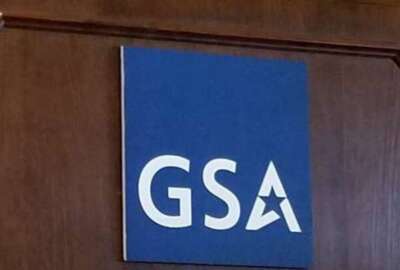Coming or going Jan. 20? OPM has plenty of transition reminders
The Office of Personnel Management has been busy in recent weeks, releasing a series of new memos as reminders to any political appointees and senior officials who...
If you’re coming into a new government position in a few weeks or leaving one, chances are the Office of Personnel Management has released guidance in recent days that applies to you.
Seasoned members of the civil service won’t find anything new in OPM’s deluge of recent memos, but the agency is taking the last two weeks of the current administration to remind the federal workforce about little-known policies they might find relevant during the presidential transition.
For example, OPM is encouraging any non-career appointees who plan to resign at noon on Jan. 20 to work with their agencies and determine how many hours of compensation they’re entitled to receive on their last day of work.
An employee who resigns and works a half day will receive a full day of retirement credit, OPM said. The employee’s coverage under the Federal Employee Health Benefits program will continue until 31 days after the end of the pay period where the resignation occurred.
OPM also has some transition reminders for incoming appointees to the new administration.
Senior political officials under a pay freeze
Though President Barack Obama authorized a 2.1 percent pay raise for most federal employees in 2017, certain senior political appointees — including those coming into the new administration — won’t receive the same treatment.
Pay rates from 2013 will continue to apply for employees in Executive Schedule positions, political appointees, chiefs of mission or ambassadors at large, non-career appointees in the Senior Executive Service, limited term appointees or limited emergency appointees in the SES paid at or above EX-IV, OPM wrote in Jan. 10 memo.
“The freeze not only bars salary increases (except as allowed under certain narrow exceptions), but also requires that persons who are newly appointed to a covered position must have the initial salary rate set in accordance with 2013 rates and limitations,” OPM said.
The freeze continues because Congress passed a continuing resolution through Apr. 28, 2017, which did not change pay rates for senior officials beyond 2013 levels.
It will continue until Apr. 28 or whenever Congress passes a new Financial Services and General Government appropriations package, OPM said. Congress could choose to keep pay rates for senior officials at the same 2013 freeze levels, or those rates could change.
The pay freeze does not apply to most employees on the General Schedule or Foreign Service pay systems, the memo said.
Temporary transition authorities
Agencies may use the Temporary Transition Schedule authority after Jan. 20, 2017 for up to a year or whenever a new agency leader begins his or her position, OPM said in a Jan. 9 memo.
Nominees awaiting Senate confirmation can serve temporarily in the Senior Executive Service, though some limitations on the number of people serving in noncareer, temporary SES positions occur.
“These individuals normally serve in an advisory or consultative capacity in another position until confirmed,” OPM said.
Cabinet agencies may use up to five non-career SES appointment authorities, while non-cabinet agencies can use up to three.
The goal of these authorities is to get some new senior appointees in the door and working in some capacity after Inauguration Day.
Employee misconduct
OPM also released a new guide for managers with best practices for managing employee misconduct or poor performance.
The agency didn’t indicate that the release of this guidance coincided with a particular need or trend but instead said the materials were part of a series of instructive management tools.
“Too often, implementation challenges and misconceptions related to addressing employee performance and conduct get in the way of taking swift and appropriate action to manage individuals whose performance or conduct detracts from the accomplishment of an agency’s mission,” Cobert wrote.
The guidance doesn’t authorize any new procedures or policies, but it does clarify when an agency must work with an employee to develop a performance improvement plan and when an agency must provide substantial evidence to support a disciplinary action.
Employee accountability has been a popular topic on Capitol Hill in recent years, and President-elect Donald Trump has indicated his own plans to propose alternative measures for firing federal employees and executives.
Copyright © 2025 Federal News Network. All rights reserved. This website is not intended for users located within the European Economic Area.
Nicole Ogrysko is a reporter for Federal News Network focusing on the federal workforce and federal pay and benefits.
Follow @nogryskoWFED






